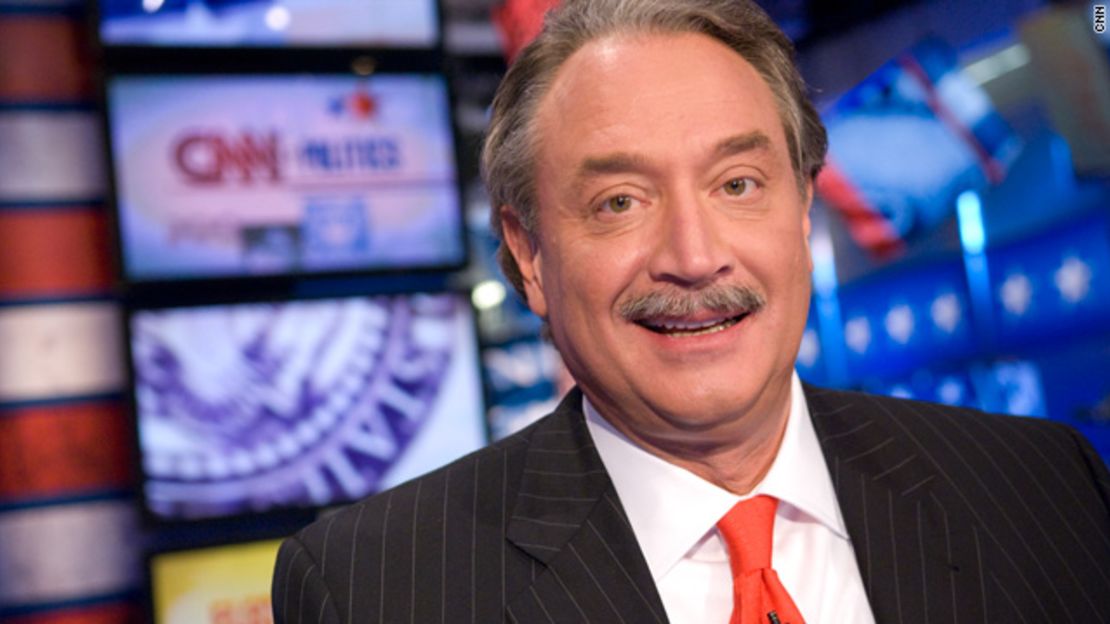Editor’s Note: Alex Castellanos, a CNN contributor, is a Republican consultant and the co-founder of Purple Strategies. Follow him on Twitter: @alexcast.
Story highlights
Alex Castellanos: President Obama has switched positions on a wide variety of issues
He says the president has changed policies on economy, foreign affairs
Castellanos: Obama is conflicted on many issues, and vacillations hurt the United States
As debates begin, voters can ask what the president stands for, Castellanos says
Who is the president who debates his re-election Wednesday evening? The uncertainty of what he stands for is mounting.
He was the man who supported “pay-as-you-go budgeting.” Yet more U.S. debt was created during his administration than in any previous one.
He boasts George W. Bush issued more regulations than his administration. He also accuses Bush of deregulation.
He says he supports American energy independence. He withdraws oil and gas leases on public lands, cancels lease sales and establishes new obstacles to energy production.
He spurns earmarks. He signs a bill with thousands of them.
He supported Egypt’s Hosni Mubarak before he undermined Mubarak.
He ordered federal officials to “usher in a new era of open government.” Nineteen of 20 of his Cabinet-level agencies disobeyed the law requiring the disclosure of public information.
He said, “Lobbyists will not find a job in my White House” and pledged he wouldn’t raise money from them. They have. He did.
Opinion: 10 questions for Obama to answer

He ridiculed the Bush tax cuts and the “tired and cynical philosophy” behind them. He extended the Bush tax cuts.
He said Moammar Gadhafi must go while the chairman of his Joint Chiefs of Staff explained that wasn’t the president’s objective.
He leads from behind, reports one of his advisers, describing the president’s handling of the Libya uprising. That’s what most people call “following.” He follows, crediting himself with leadership.
He attacked Hillary Clinton’s plan to mandate health insurance coverage and John McCain’s tax on Cadillac health plans. He turned around and proposed both ideas.
He has said, “Democrats are not for a bigger government,” while advancing it.
He hides under the wing of a former president who declared that “the era of big government is over,” though he, himself, revived that era.
He proclaims the urgency of his jobs bill. He waited for nearly 1,000 days to introduce it.
He was elected promising no red or blue America, no liberal or conservative America, “just one America.” He has built his re-election on division.
He said, “We can argue fiercely about the proper size and role of government without questioning each other’s love for this country.”
He says Republicans in Congress do not “put country ahead of party.”
He decries Republican elitism. He plays more golf, it seems, than Jack Nicklaus.
He pledged to end rendition of terror suspects. He now supports it.
He’s said government shouldn’t be in the business of running car companies. He took over General Motors and fired its CEO.
He proposed the Affordable Care Act. It has made health care less affordable and costs trillions.
He attacks Republicans for cutting Medicare. He cut half a trillion dollars from Medicare.
In chorus, he urges deficit reduction and offers large deficits for 10 straight years.
He said, “The president does not have power under the Constitution to unilaterally authorize a military attack in a situation that does not involve stopping an actual or imminent threat to the nation.” He authorized military action against Libya without consulting Congress.
He stands back while Arab Spring demonstrators die in the streets, cries for American help on their lips. He gives the Arab Spring lip service.
He pledges he’ll close Guantanamo. He keeps it open, failing to convince other countries to accept its detainees.
He leads an administration that left our American ambassador to Libya vulnerable on the anniversary of 9/11. Upon the diplomat’s tragic loss, he blames a movie.
He begged Russia’s Dmitry Medvedev for a little more space on missile defense “until after the election.” He explains that meant he was “committed” to missile defense, the opposite of what he said.
He sees his own accomplishments equal to those of any president, “with the possible exceptions of Johnson, FDR and Lincoln.” He boasts of his own humility, also comparing himself to Lincoln.
He writes lyrically in his autobiography that he is the red soil of his father’s Kenyan grave and the windblown dirt of Kansas. He is a man of the Harvard elite and of the Chicago streets.
And as the wind blows, our president sways, a conflicted man pirouetting with increasing velocity. He changes where our nation stands as easily as we change a channel. With even greater ease, he changes who he is.
Now he tells us his rudderless direction is the best that could be done.
He expects the support of a nation he still leaves adrift.
Uncertain of what’s to come, fearing decline, we turn on ourselves with increasing ferocity. We divide and then devour ourselves by class, party and ideology. Decision-makers on Wall Street and in the business world, though flush with cash, remain paralyzed, unsure of where he is taking us. Beyond our shores, we have lost the world’s respect: They see us led by an elastic man whom friends cannot trust and enemies need not fear.
A year ago, Mitt Romney’s reversible outer-gear was expected to doom his campaign for president. His opponent’s indeterminacy has drained that topic of its energy. It is Barack Obama who is unformed and shapeless, seeming to weigh everything but believe in nothing. It is the incumbent who is, at once, no one and everyone, nothing and everything.
Wednesday, two men debate for the Oval Office. The election is undecided.
So, all too often, is the mercurial president who is asking for another term.
Follow @CNNOpinion on Twitter
Join us at Facebook/CNNOpinion
The opinions expressed in this commentary are solely those of Alex Castellanos.







